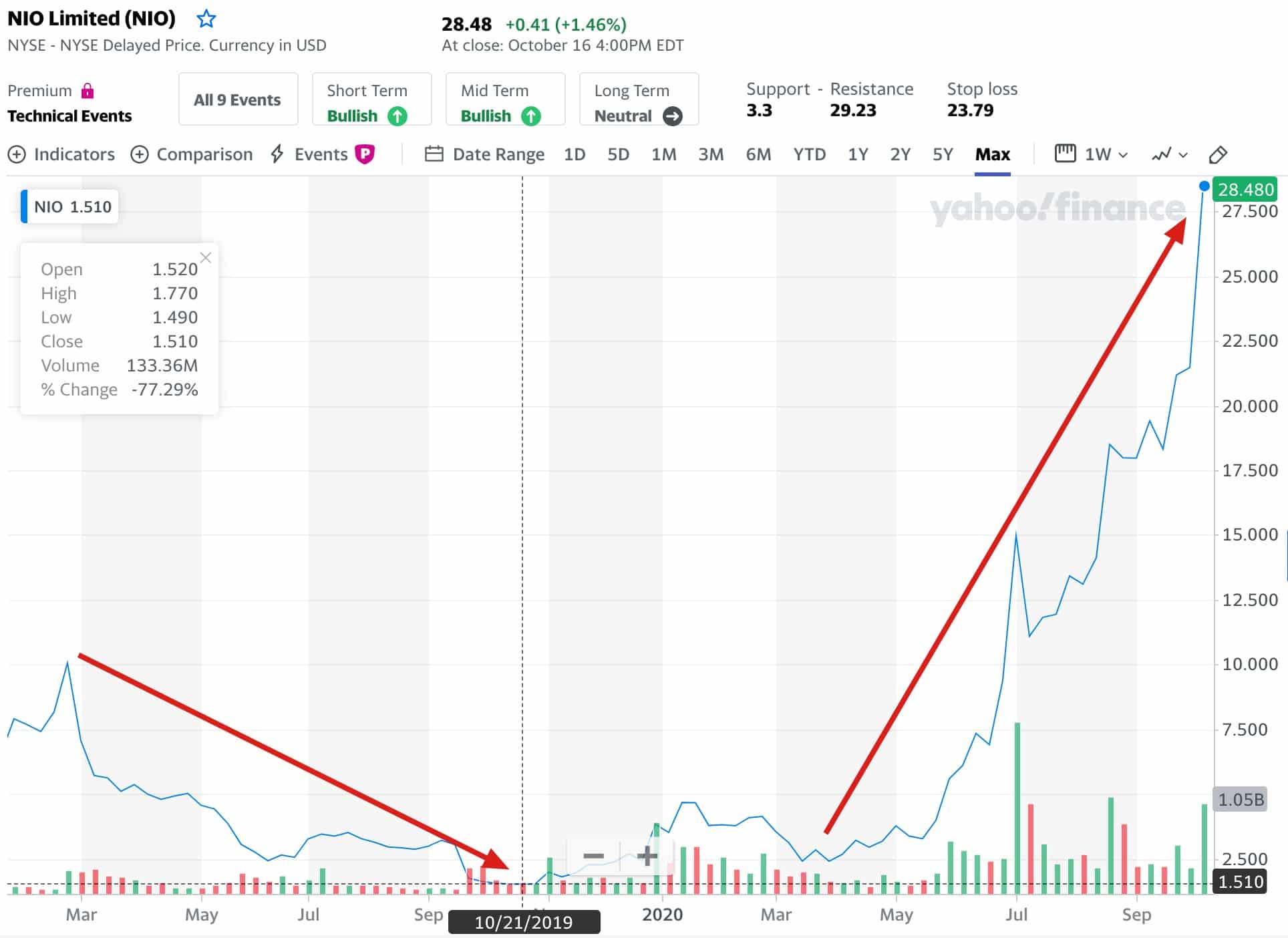
In just six months, the stock of Chinese EV maker Nio (NYSE: NIO) rose more than 10 times. There are many investors who admire its rise, but not many who actually make money from it.
At present, Nio's market capitalization has reached 38.4 billion US dollars (about 257.1 billion yuan), surpassing SAIC (600104.SH) 239.5 billion yuan, second only to BYD (002579.SZ) 356 billion yuan, becoming China's second-largest vehicle market capitalization listed companies, equivalent to the market capitalization of two Guangzhou Automobile Group (601238.SH ) in market capitalization.
Discussions about Nio's plight were rife in late 2019, with Nio founder William Li Bin being called "the most miserable man in China" by local media. The most controversial part of the investor debate was how many months away from bankruptcy was Nio at that point.
At the end of June 2019, Nio had only $342 million in cash on its books, $1.16 billion in current assets, and $1.2 billion in current liabilities, which could not be fully covered.
At the end of December 2019, Nio had only $124 million in cash, $706 million in assets, and $1.362 billion in liabilities.
Nio's funding to Beijing Yizhuang and Zhejiang Huzhou at the time did not come to fruition, and subsequent events such as the departure of its CFO hit investor confidence even harder.
For most investors, Nio must have been a very unpleasant place to be at the time, with the ultimate return coming from extreme decisions and no joy in the betting phase.
It makes sense that if you were back in that scenario, you would probably have missed Nio at its lowest point, and the opposite would not have been true.
In February, Nio signed an agreement with the city of Hefei to ease cash flow problems, with cash on the books reaching $1.48 billion in the second quarter. The stock price is up 11.7 times in six months, and 7.6 times in the past five months.
Nio is an extreme case, and it's normal for investors to miss it, because many senior investors also misjudged Nio's business prospects, and finally realized that the Hefei city government has a unique vision.
In the right investment model, you don't have to leave a place for miracles, just focus on long-term certainty.
If a company doesn't see a certain future in the long run, which Nio did at the end of last year, then you shouldn't bet on it in the short term. You could then, of course, miss the miracle of its sudden reversal.